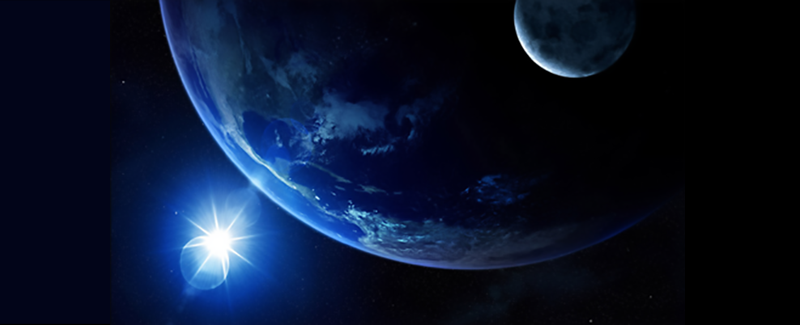Living With a Star Institute
For researchers and engineers

Teaming up to reduce space weather impacts
The technologies we depend upon to support our daily lives are vulnerable to impacts of the Sun’s magnetic variability. Space weather caused by solar storms can disrupt operation of our telecommunication, navigation and weather satellites, our power grids, and our radio communications — with potentially disastrous results.
The Living With a Star (LWS) Institute is designed to facilitate a bridge between cutting-edge heliophysics research and a societally relevant technology area that is affected by space weather. Sponsored by NASA’s Living With a Star program, the LWS Institute brings competitively-selected researchers and engineers from academia and industry together in small working groups to focus on a particular technology area. Working groups define cooperative new research that will make a critical difference to this technology.
An LWS Institute Working Group (WG) proposal will:
- Focus on a particular technology area that will be positively affected by space weather research advances
- Identify a team that is composed of members who perform heliophysics research that is relevant to the affected technology, who forecast or model space weather for this technology, and who use (or who will use) this technology (when it is successfully improved),
- Describe how the team will quantify and parameterize the magnitude and pathways of the impacts on the affected technology and will scope the new ranges of targeted research that accordingly will be needed,
- Articulate the impacts of this targeted research by envisioning the resulting, improved operational capability that will make a positive difference to society.
Proposals should focus on:
- Improving understanding of the process and/or magnitude of the impacts of space weather on the selected system
- Identifying the science needed to enable our forecast ability for that system, and
- Outlining, if not executing, research that may develop abilities to reduce the impacts of space weather on that system.
Final Report
Each LWS Institute WG is required – as a final report – to jointly submit a peer-reviewed study that provides an integrated view of the space weather impacts on the selected technology area, a quantification of the magnitude of the impact for space weather of different magnitudes, a description of the impact pathways and of the scientific understanding achieved during the course of the WG, either a method to positively impact the technology or a research plan by which positive impact to the technology could be quantifiably achieved through space weather research advances, and a high-level graphical and textual vision of the resulting operational technology solution. The team will also provide a Working Group Report for the benefit of the LWS community.
How the program works
Up to twice a year, a call for applications will be released for international teams of scientists to address specific topic areas related to the broad theme of Living With a Star, including pure and applied research into the nature of space weather and space climate phenomena and their impacts on society and its infrastructure. Teams may be made up of approximately 8 to 15 scientists from different research labs, universities, and industry, from different countries and with complimentary expertise. The teams will meet approximately twice in a 12-month period for about a one-week duration each time. Meeting locations may vary depending upon cost and home institution locations of the participating scientists.
The team leader will be responsible for submission of the proposal and for organizing the execution of the project. The team leader should also identify a co-team lead that would provide complimentary expertise from the engineering/user community. The primary goal of the projects is to result in a comprehensive report of the outcome of the study and, at least one refereed team publication. One or two postdoctoral or early career scientists may be included in the proposal to work alongside the team.
A science committee selected by the LWS Program Scientist and appointed by UCAR evaluates proposals and makes recommendations for support to LWS Institutes’ sponsors. The UCAR Cooperative Programs for the Advancement of Earth System Science (CPAESS) administers these Working Groups and provides support for travel expenses, per diem, lodging and local area transportation costs during the weeklong meetings.
A typical award may include:
- Two 5-day meetings for up to 15 team members including: travel, catering, meeting room and audiovisual costs (Please note that UCAR cannot support travel for federal employees).
- A ½ day team meeting at either AGU or AMS including meeting room rental and audiovisual.
- Teleconferencing using Go-to-Meeting or Ready Talk.
- Publication costs
